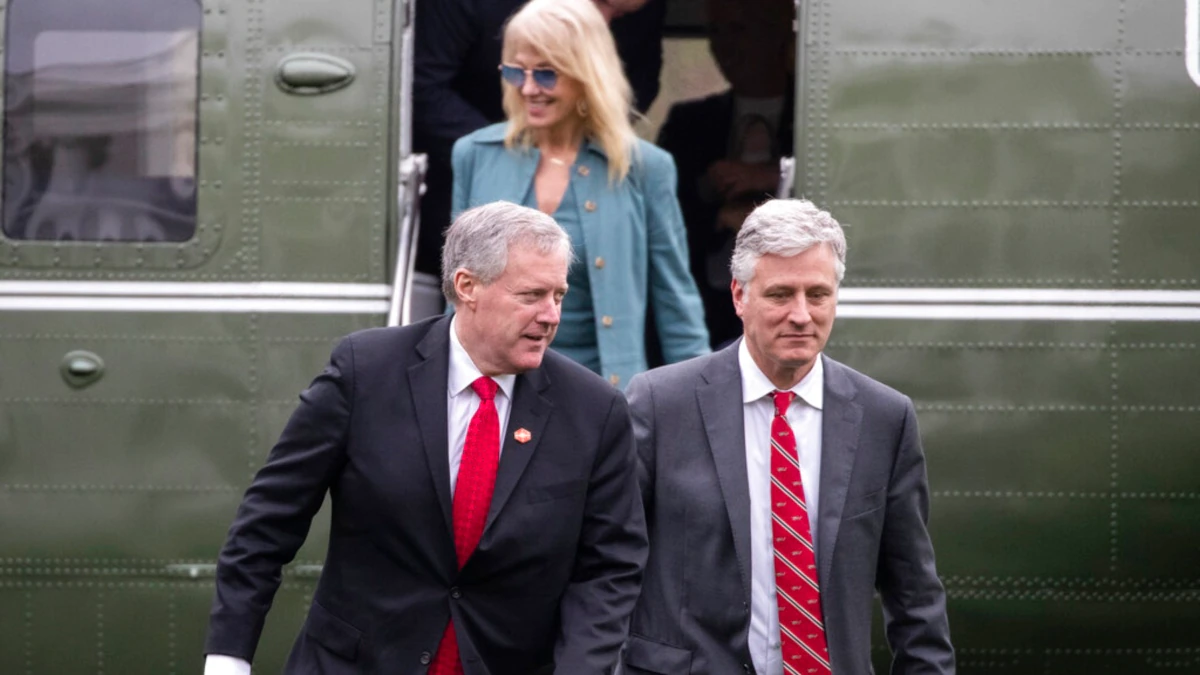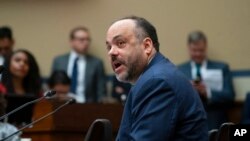A federal agency charged with making sure that government employees do not use their positions to influence elections released a scathing report this week, finding that at least 13 senior members of the administration of former President Donald Trump, including former Secretary of State Mike Pompeo, engaged in “willful violation” of the Hatch Act, a federal law limiting their political activities.
The report, released by the Office of Special Counsel, reveals a major problem for the United States when it comes to preventing senior administration officials from misusing their positions for political gain. According to the OSC, the only person in a position to punish Hatch Act violations by the most senior officials in the executive branch is the president.
“Indeed, the 2020 election revealed that, at least with respect to an administration’s senior-most officials, the Hatch Act is only as effective as the White House decides it will be,” the report found. “Where, as happened here, the White House chooses to ignore the Hatch Act’s requirements, then the American public is left with no protection against senior administration officials using their official authority for partisan political gain in violation of the law.”
Ethics laws seen as insufficient
Liz Hempowicz, public policy director for the Project on Government Oversight, an independent good-government group, told VOA the unprosecuted violations revealed in the report go to the heart of what many Americans see as the biggest problem with the country.
“The number one concern for constituents across the board is corruption in government, and even more specifically, corruption in government that is never held accountable,” she said.
Hempowicz decried “violations of an ethics law where the watchdog organization in charge of enforcing the law cannot or will not bring enforcement actions against very high-level individuals who violate the law incredibly publicly.”
Hempowicz continued, “It just goes to some of the main concerns we’ve heard from the public. And it reinforces the idea that these ethics laws that we have to protect the people’s interests are not sufficient.”
Multiple violations
The report lists a large number of violations of the Hatch Act during Trump’s term in office, but much of the report is focused on the months immediately prior to the 2020 presidential election, and particularly to the Republican National Convention (RNC). Trump sparked controversy by deciding to hold the convention, a purely political event typically staged in a large city outside Washington, on the grounds of the White House itself.
The report says that while it may have been a breach of political norms, it was not de facto illegal to hold the RNC at the White House. However, during the convention, the OSC documented individual violations of the law.
During the RNC, Pompeo and then-Acting Secretary of Homeland Security Chad Wolf both appeared in their official capacity in events designed to improve the former president’s chances of reelection. Pompeo, who was on a diplomatic trip to Israel at the time, delivered a livestreamed address to the convention. Wolf prerecorded an official naturalization ceremony, in which immigrants to the United States officially become citizens, for a similar purpose.
Numerous violators
The report lists numerous other senior officials who, on one or more occasions, used appearances made in their official capacity to boost the former president’s reelection campaign.
They include then-Secretary of Energy Dan Brouillette; then-Senior Counselor to the President Kellyanne Conway; then-Senior Adviser to the President Jared Kushner, who is also Trump’s son-in-law; and then-White House press secretary Kayleigh McEnany.
Others were then-White House Chief of Staff Mark Meadows; then-Senior Adviser to the President for Policy Stephen Miller; then-national security adviser Robert O’Brien, and several others.
As elected officials, neither Trump nor former Vice President Mike Pence was subject to the Hatch Act during his term in office, and therefore broke no rules by campaigning in his capacity as president or vice president.
However, the OSC concluded that the president and vice president knew about the frequent and ongoing violations of the law, pointing out that the agency had briefed the White House multiple times and had sent “an unprecedented 15 warning letters to senior administration officials notifying them that they had violated the Hatch Act.”
Calls for change
The OSC is led by Special Counsel Henry J. Kerner, who was nominated by Trump and confirmed to his position by the then Republican-led Senate in 2017. His office regularly brings enforcement actions against more junior executive branch appointees. However, the agency has long believed that its authority ends with Senate-confirmed members of the administration and people appointed directly by the president.
According to the OSC, the report was issued “to educate employees about Hatch Act-prohibited activities, highlight the enforcement challenges that OSC confronted during its investigations, and deter similar violations in the future.”
In recognition of its inability to effectively enforce the law, the OSC recommended a number of legislative changes. Among other things, the agency is asking Congress to give it the authority to apply monetary penalties to senior administration officials for Hatch Act violations, even after they have left office. The agency also wants the ability to issue regulations related to the Hatch Act, and suggests that Congress determine what areas of the White house complex can be used for political activity.
‘It was egregious’
Experts concerned with good governance and transparency said there was nothing particularly unexpected in the report, but they praised it for drawing attention to the significant gaps in enforcement that allowed the violations to take place in the first place.
“I don’t think there was anything that was surprising,” said Max Stier, president and CEO of the Partnership for Public Service, a group that promotes good government. “We all saw the activity as it occurred. It was egregious.”
Nevertheless, he told VOA, the report is important.
“We have a tendency, as a society, to move on from crises … without going back and following the thread about what the consequences are … and we don’t learn as a result,” said Stier. “The OSC report is a very important look at the need for reform of the basic infrastructure of the way our government operates.”
The OSC and other watchdog agencies like it were set up more than 40 years ago, in the wake of the Watergate scandal that brought down former President Richard Nixon.
“It’s about time that we revisit, in our present world, what we need by way of structure inside government to ensure that we continue to have a first-grade, corruption-free and effective government,” Stier said.
















































